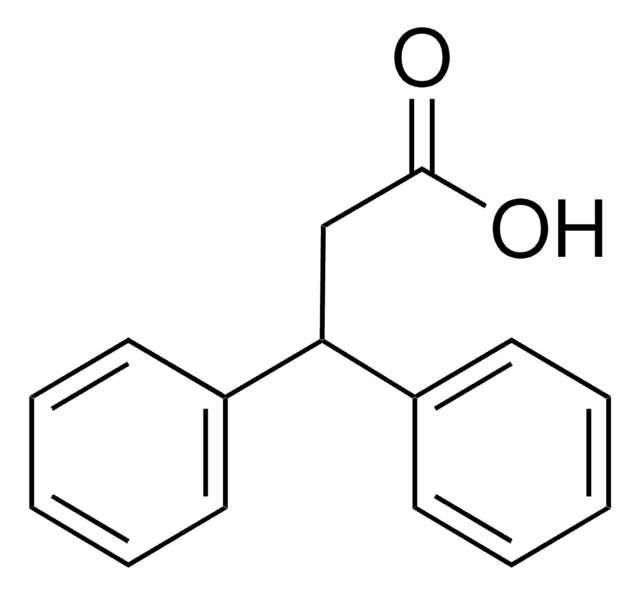Y0001220
Captopril impurity C
European Pharmacopoeia (EP) Reference Standard
Synonyme(s) :
(2RS)-2-Methyl-3-sulphanylpropanoic acid, 3-Mercaptoisobutyric acid
About This Item
Produits recommandés
Qualité
pharmaceutical primary standard
Famille d'API
captopril
Fabricant/nom de marque
EDQM
Application(s)
pharmaceutical (small molecule)
Format
neat
Conditions d'expédition
wet ice
Température de stockage
−20°C
InChI
1S/C4H8O2S.Na/c1-3(2-7)4(5)6;/h3,7H,2H2,1H3,(H,5,6);/q;+1/p-1
Clé InChI
FOTPRJUNQGWLCM-UHFFFAOYSA-M
Description générale
For further information and support please go to the website of the issuing Pharmacopoeia.
Application
Conditionnement
Autres remarques
Produit(s) apparenté(s)
Mention d'avertissement
Danger
Mentions de danger
Classification des risques
Acute Tox. 3 Oral - Acute Tox. 4 Inhalation - Eye Dam. 1 - Met. Corr. 1 - Skin Corr. 1B
Code de la classe de stockage
6.1C - Combustible acute toxic Cat.3 / toxic compounds or compounds which causing chronic effects
Classe de danger pour l'eau (WGK)
WGK 3
Point d'éclair (°F)
Not applicable
Point d'éclair (°C)
Not applicable
Faites votre choix parmi les versions les plus récentes :
Certificats d'analyse (COA)
Désolés, nous n'avons pas de COA pour ce produit disponible en ligne pour le moment.
Si vous avez besoin d'assistance, veuillez contacter Service Clients
Déjà en possession de ce produit ?
Retrouvez la documentation relative aux produits que vous avez récemment achetés dans la Bibliothèque de documents.
Notre équipe de scientifiques dispose d'une expérience dans tous les secteurs de la recherche, notamment en sciences de la vie, science des matériaux, synthèse chimique, chromatographie, analyse et dans de nombreux autres domaines..
Contacter notre Service technique









